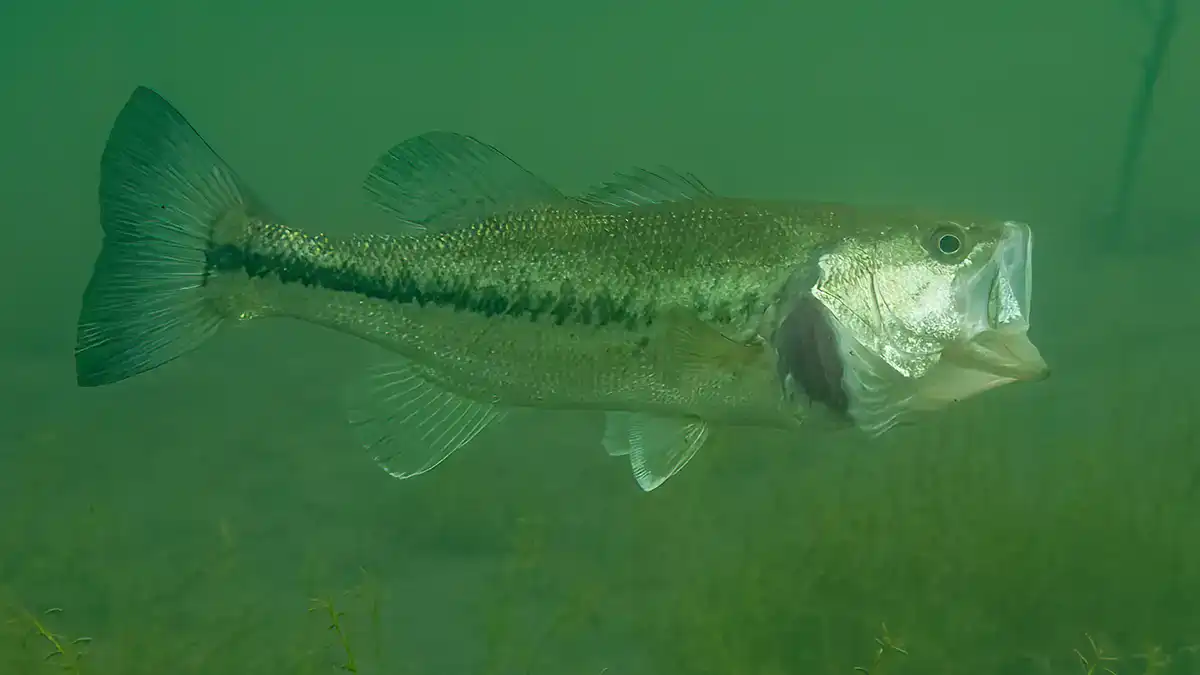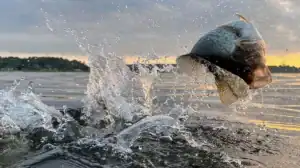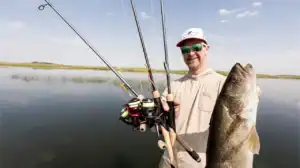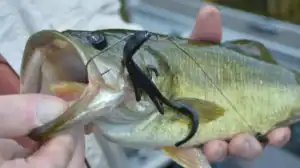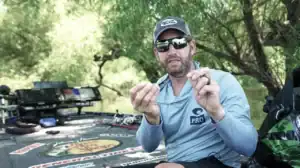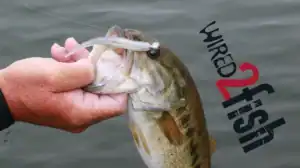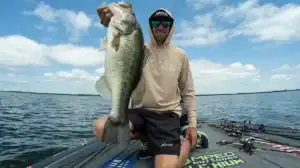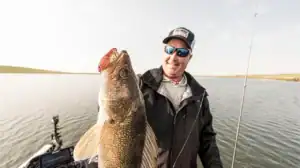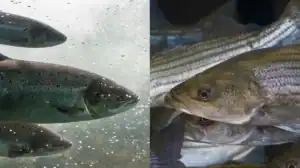Maine has enacted emergency fishing regulations eliminating all bag and size limits for bass in Washington County — a direct response to the illegal introduction of largemouth bass into West Musquash Lake, one of the state’s most treasured native fisheries.
Effective September 21, the rule is part of an aggressive effort by the Maine Department of Inland Fisheries and Wildlife (MDIFW) to eliminate the invasive predator from the 1,600-acre lake and prevent further damage to its vulnerable populations of native brook trout, landlocked salmon, and round whitefish.
“We hope this change will encourage anglers to harvest every bass they catch in the region, helping reduce populations and remove the incentive for future illegal stockings,” communications director for the MDIFW Mark Latti explained to the Maine Wire.
Wild Lake, Illegal Fish
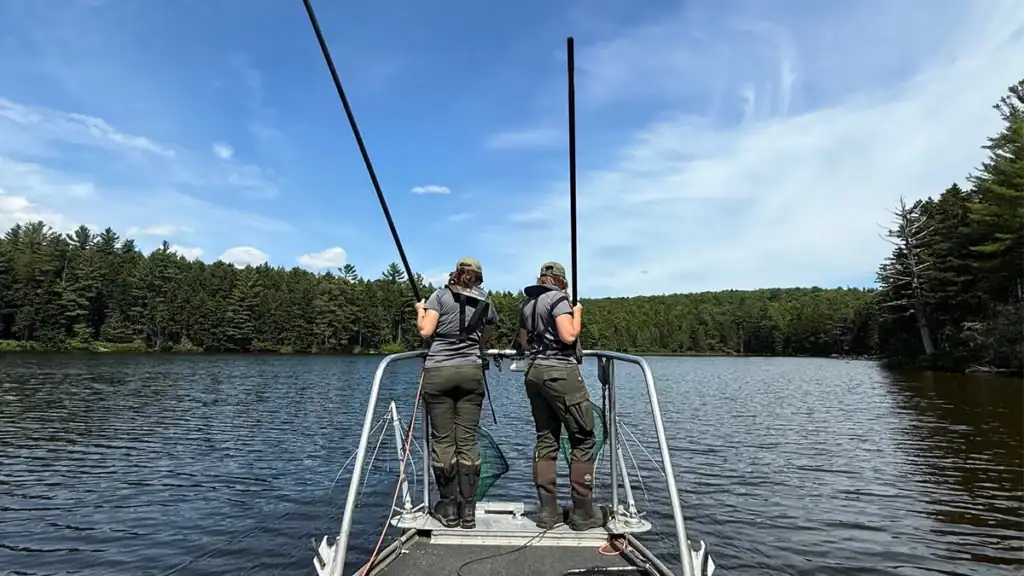
West Musquash Lake, nestled deep in Washington County and accessible only by remote dirt roads, is known for its clear, cold water and unique, self-sustaining fishery. Unlike many lakes in the region, it is not stocked, making it a vital natural habitat for several rare species.
As Wired2fish reported earlier, this wild balance was thrown into jeopardy in July when a local fishing guide reported that his young son had caught a largemouth bass — a species that has never been documented in the lake. The photo prompted a swift investigation by MDIFW biologists.
“He knew largemouth bass weren’t supposed to be there,” Latti told Wired2Fish. “Once we saw the photo, we got a crew together.”
Using electrofishing boats, MDIFW and members of the Passamaquoddy Tribe confirmed not only the presence of largemouth bass, but multiple age classes, including likely fry — a clear indication of an established, reproducing population.
“Tragically, this could lead to the elimination of that native fishery,” Latti added. “Largemouth bass lay more eggs than trout and prey on trout and salmon fry, negatively impacting, and potentially eliminating, this native fishery.”
Natural Migration Ruled Out
To rule out the possibility of natural migration, MDIFW biologists surveyed nearby waters including upstream Orie Lake and the outlet stream flowing into Big Lake. They found no largemouth bass in Orie Lake, and physical barriers such as waterfalls and steep bedrock make it virtually impossible for bass to swim upstream from Big Lake, where bass have existed for over 100 years without ever reaching West Musquash.
The outlet — the West Branch of Big Musquash Stream — features a mile-long stretch of steep waterfalls, narrow ledges, and shallow, fast-moving water that have blocked fish movement for over a century.
“Smallmouth bass are stronger swimmers, and they haven’t been able to get through,” Latti explained to Wired2fish. “We do not believe that largemouth bass could have made it through that natural barrier.”
Also ruled out: birds transporting viable eggs or fry. While some research exists on the topic, there is no documented case of that happening in Maine.
This evidence points squarely to human involvement. “We strongly feel this was an illegal introduction directly into West Musquash,” MDIFW said in a statement.
Illegal stocking in Maine is a Class E crime, punishable by up to $10,000 in fines and a 10-year license suspension. Under a new law signed by Governor Janet Mills in June, violators may also be forced to cover the full cost of fishery mitigation and restoration.
$6,000 Reward for Information
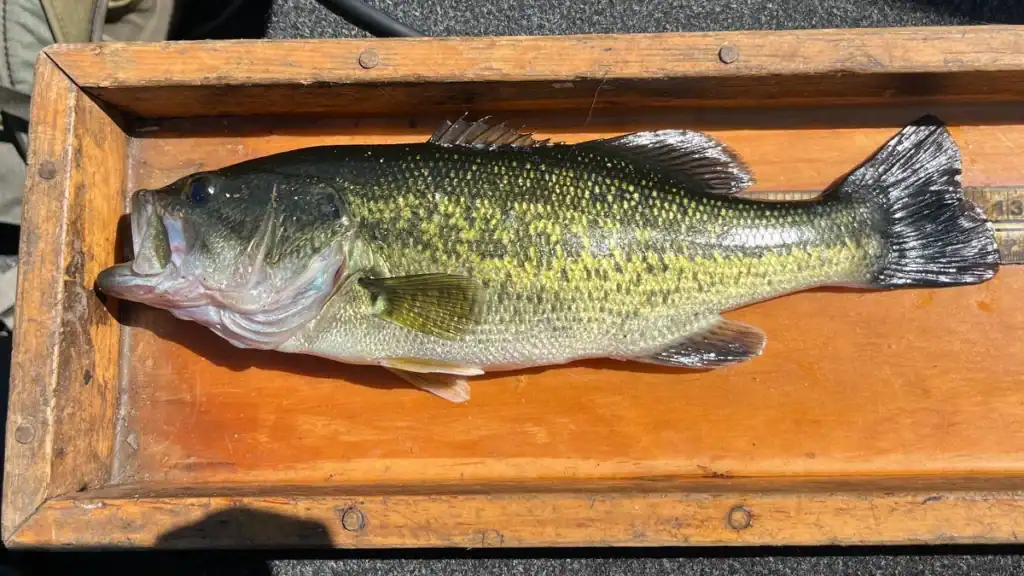
To catch the person or people responsible, the Maine Warden Service, in partnership with Operation Game Thief and the Grand Lake Stream Guides Association, is offering a $6,000 reward for any information leading to an arrest and conviction.
“It is the largest reward we have ever had for a fisheries crime,” Latti told Wired2Fish.
Anyone with information is urged to contact Operation Game Thief at 1-800-ALERT-US or visit MaineOGT.org. Reports can be made anonymously.
What’s in Store for West Musquash Lake?
Unfortunately, a complete eradication of largemouth bass from West Musquash is considered unlikely due to the lake’s size and remote location. However, MDIFW is encouraging anglers to kill any bass they catch and will launch an educational campaign to raise awareness.
Biologists will also monitor the lake’s native populations closely in the coming months and may consider stocking programs or additional regulation changes if the invasive bass continue to spread.
The agency is also reminding anglers to never transport or release live fish into any waterbody without a permit. They encourage anglers to dispose of baitfish and worms properly; never in the water. Use only legal baitfish species, and double-check if you’re unsure. And don’t forget to clean, drain, and dry boats and gear after each use.
“This is our only water in the region that supports all these fisheries without an active stocking program,” MDIFW said. “Sadly, this introduction will no doubt change the lake forever.”
The Bigger Picture
The illegal stocking of bass is not a new issue in Maine. The state is home to some of the last strongholds for wild eastern brook trout and native landlocked salmon. According to Latti, illegal introductions are the number one threat to Maine’s native fisheries.
“People move bass to create a new or trophy fishery,” Latti told the Maine Wire. “By not protecting bass and encouraging anglers to remove them, that new or trophy bass fishery that the perpetrators envisioned is thwarted, taking away the incentive to move fish illegally.”
